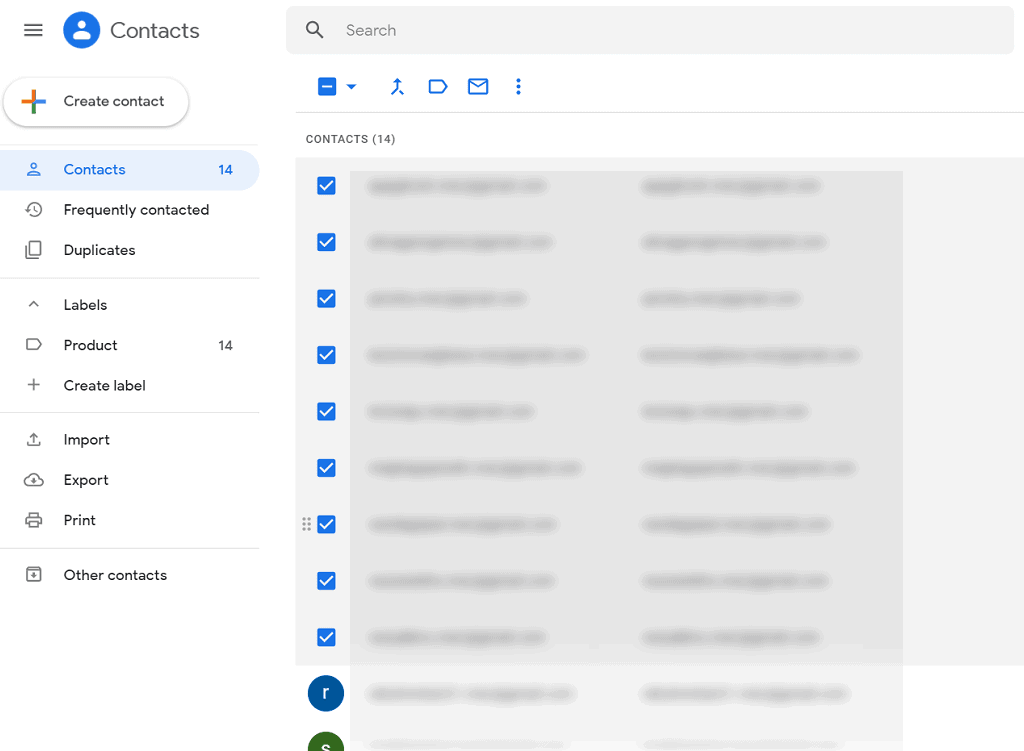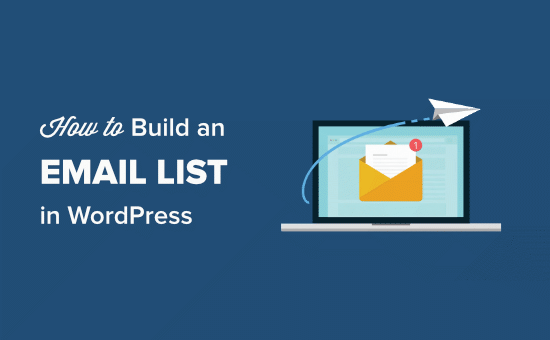Excellent Facts To Picking An Email List Website
Wiki Article
What Do I Need To Think About When Purchasing A Cpa Email List?
To make sure that your CPA (Certified Public Accountant) and email list is in compliance, relevant and high-quality it's essential to evaluate some key aspects. What you should consider is:1. Data Quality and Accuracy
Source of information: Examine the source of the list. Reputable companies usually have their data sourced from legitimate sources, like trade associations or directories. Avoid lists created through scraping data or employing unreliable techniques, as these may contain outdated and inaccurate information.
Verification: Check that the list of email addresses is recently verified. This helps reduce bounce rates and also ensures that you're contacting active, valid email addresses. CPAs have a reputation for changing their jobs and firms frequently, so it is important to ask how often they are updated.
Segmentation: A great CPA database should provide segments to choose from. These include location (city or state) and industry-specific specializations (e.g. auditing and taxation, financial planning) years of experience and the size of the firm. Your campaigns are more relevant by using targeted advertising.
2. Legal Regulations
Data Privacy Laws: Ensure that the email lists comply with the laws on data protection like the General Data Protection Regulation (GDPR), the California Consumer Privacy Act (CCPA) as well as any other local laws that are relevant. Email addresses should be obtained legally with the consent of all individuals involved.
Compliance with CAN-SPAM Act: In the case of U.S. email campaigns, the list should be compliant with the CANSPAM Act, which governs commercial email communication. This includes opt-out features and avoiding misleading topics or contents. Infractions to the law could be punished with fines and legal issues.
Sign up for Consent. Be sure to obtain email addresses through opt-in permission, i.e. recipients agreeing to receive emails. This reduces the risk of complaints about spam. This also improves engagement.
3. Provider Reputation
Reputable Provider: Study the reputation of the company thoroughly. You can assess previous customer experiences by checking reviews, case studies and testimonials. Established firms with proven record of success are more likely to provide accurate, high-quality data.
Transparency. The provider must make it clear what data is used and when it is changed. It's a warning sign if the provider can't be able to clearly explain their methodology.
Customer Support: A reliable and dependable support service is vital in case you need assistance customizing lists, troubleshooting or understanding the regulations for compliance. A competent support team will save both time and energy throughout the process of launching your campaign.
4. Cost and Return on Investment
Pricing Models. Different providers have various pricing structures. Some charge by contact, whereas others charge the option of a subscription or flat rate. Examine ROI expectations against costs, while balancing the quality and price of the list.
Ask about refund policies. If there is a large number invalid or incorrect email addresses, many providers offer a replacement or refund policy. A guarantee gives peace of mind.
Don't just focus on the cost. If the list isn't of good quality, a less expensive one might look appealing, but it can lead to low engagement rates or high bounce rate. You should pay for lists with accurate information and options for segmentation.
5. Ownership, Usage Access and Usage
Purchase the list one time or buy it multiple times. While mailing lists that are solely for one-time use are more expensive and you'll have more freedom for long-term campaigns when you have the list.
Shared Lists: Determine whether the list is exclusively yours or shared with multiple buyers. Shared Lists - Find out if you are the only person who purchases an email list or when multiple buyers share it. Shared list may result in audience fatigue since recipients are already bombarded with marketing emails.
6. Data Integration and Format
CRM compatibility: Check that the list you receive is in a compatible format with your email CRM or marketing software. Examples include CSV and Excel. This will make it easy to manage of the data and its import.
User-friendly: How easily can the data be segmented and managed after they have been in your system? An organized list will enable targeting and personalization to be more efficient.
7. Ethical Questions
Relevance of Content: CPAs are busy professionals Therefore, it's essential to provide relevant, valuable content. Sending irrelevant messages can harm your reputation and result in more spam complaints.
Avoid Over-Emailing. Be aware of how often you email contacts from the list. Unsubscriptions could result, spam complaints or even unsubscribes. This could negatively impact the reputation of your sender.
You will be able to conclude your conclusion by clicking the link below.
When buying a CPA email list, consider the quality of data, legal compliance, and the provider's reputation to ensure your investment is worth it. Segmentation and targeting as well as ethical practices will increase engagement, ROI, as well as the perception of your brand. Follow the top rated cpa email list for site examples.

The Top 10 Aspects To Consider When Buying An Email List For The Oil And Gas Industry
When you purchase an email list for the oil and gas industry, it is important to take into consideration a variety of factors to make sure the list is of high-quality focused, precise, and legally compliant. Here are 10 important aspects to take into consideration.
1. Relevance for target audiences
Industry Focus: Ensure that the email list specifically targets the oil and gas industry. An organized email list should include professionals including engineers and geologists. operations managers and decision-makers from upstream, downstream and midstream operations.
Job Titles and Roles Find a list which includes the relevant decision-makers within your target company (executives/managers/engineers, etc.). Within the companies that you wish to be targeting.
2. List Source and Vendor Reputation
Reputable List Providers: Buy only from email list suppliers who follow best practices. Avoid sources that have a history of questionable integrity in the event that they cause poor quality data or legal issues.
Data Quality: Testimonials or reviews are used to determine the quality and reliability of the data.
3. Data Accuracy & Freshness
Data Age: The list needs to be updated with most current contact information. Oil and Gas companies have frequent staff changes. Contacts that are not up-to-date can lead to a higher bounce-rate.
Verification Procedure. Check that the vendor verifies and regularly updates its database to eliminate inactive or incorrect contacts.
4. Compliance with Regulations
Legal Compliance - Make sure the list is compliant with the laws of both countries that govern personal data, such as GDPR, CANSPAM, etc. which govern the use and storage of personal information. Infractions could lead to severe legal risks and penalties.
Opt in Process: Verify whether the email address on the list was collected with the consent of the recipients, i.e. they've chosen to receive messages.
5. Segmentation and Customization
Custom Segmentation: Good list providers should provide options for segmentation based on elements like location, job title, business size, or sub-sectors in the field of oil and gas.
Custom Filters. Based on your campaign's goals make sure that the list of filters is customizable based on criteria, for example, location, size, or other special needs.
6. Rate of Deliverability
High Delivery: A good email list should have high deliverability rates (typically 95% or higher). Lists of low quality often have high bounce rates, which could harm the reputation of your sender and their email marketing effort.
Get previous data or statistics on deliverability to assess the quality of a list.
7. Volume vs. quality
Quality over quantity: Ensure that the list isn't just big, but also targeted and precise. A smaller, high-quality list will produce better results than a large, generic one.
Engagement Metrics Prioritize Engagement Rates Over Contact Numbers. A more engaged audience is likely to respond better to your campaign.
8. Pricing and Cost Structure
Transparent pricing: Be aware of the price of the list. Do you want to make a single purchase or are you paying per month? Beware of lists that are unusually low-priced, as these may not be high quality or even provide value.
Return on Investment - compare the list cost against the conversion rates that you expect. Paying a premium to get a list that is highly specific can save you money in the long run.
9. Privacy and Data Security
Data Protection: Ensure that the list provider has robust data security practices in place. The list provider should guarantee that all personal information is protected from unauthorized access.
Privacy: Make sure that the provider will not share or resell your data, especially in cases where your business needs privacy and discretion.
10. Customer Support and Service after sales
If you are having issues or require help in implementing, the vendor should provide ongoing customer support.
List Replacement Guarantee - In the event that there are issues with a list (e.g. inaccurate data or poor delivery) A reputable provider will offer refunds or replacements.
Take note of these aspects when buying the database of your email to support your oil and gas-related business. This will ensure that it is efficient, compliant, and aligned, and meets all of your goals. Take a look at the top rated oil and gas industry email list for blog recommendations.
